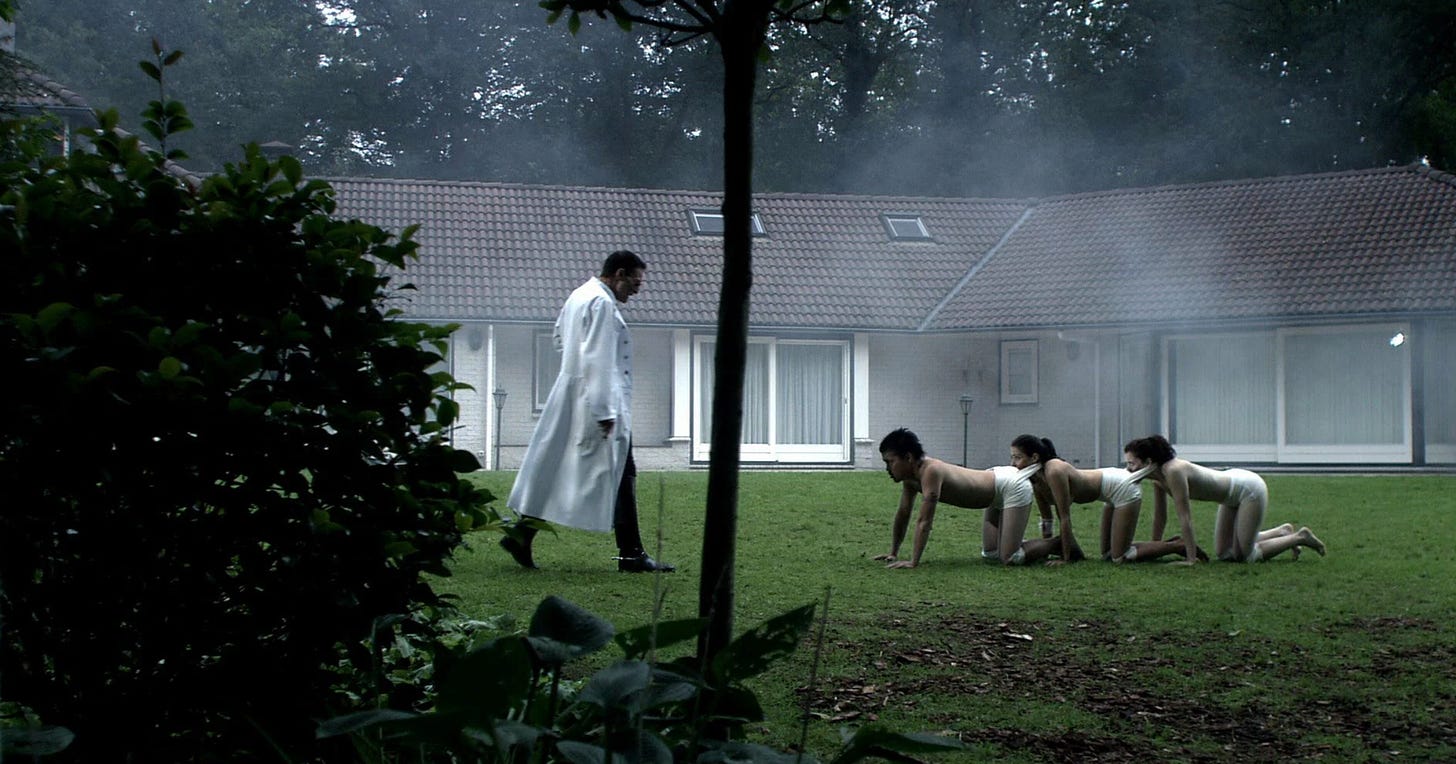Click here for Exit the Cuckoo's Nest's posting standards and aims.
Click here to sign the People's Proclamation and send it to everyone you know.
Source: The Process
Mary Harrington in the Cyborg Theocracy
Part One - Standing Reserve
Mary Harrington is a web nerd and besotted mother of one from a small market town in the English countryside.
She’s also a rising star of the dissident literary underground. She calls herself a “reactionary feminist,” and if that combination of terms reads to you like “firefighting arsonist” I suggest you see how she reconciles them in her new book Feminism Against Progress. Or “FAP” for short.
When people speak of "progress" they often refer to the improvement of humanity as a whole through solving a set of discrete problems. However, due to the complex nature of human affairs, achieving progress on one metric will inevitably cause a cascade of unforeseen trade-offs across many others. A compelling story of progress will omit the chaos outside of its through line, and if you care to investigate, you’ll find all manner of suffering hiding away in the missing scenes.
With this tragic view of reality, Mary rejects many modern progress narratives; particularly the forms of “progress” that claim to liberate individuals from tradition while dissolving their connections to a healthy social fabric. In FAP, she attempts to rescue modern feminism from this deracinating form of progress, and in my opinion, she makes one hell of a case.
Something I like about Mary is her use of playful terms to describe contemporary phenomena that escape conventional description. She invented “swarmism” to describe a new form of unaccountable network power, “meat lego Gnosticism” refers to a disembodied, dehumanising perspective that reduces human bodies to interchangeable parts, and “human centipede culture” is the never-ending stream of remakes, sequels, and imitations, fed to us by the culture industry.
When she started using “Cyborg Theocracy” to describe aspects of the moral paradigm commonly referred to as “Woke”, I immediately slid into her DMs. As social media matured through the 2010s, I noticed an interplay between the new technology and our innate religious impulses. I watched as moral communities formed into competing networks that evangelised with increasing fervour. As the Woke paradigm began to dominate the discourse, I traced its precepts upstream to the university. What I found there was a collection of activist disciplines built atop a canon of theory and I took to calling this body of work a “theology” because it has its own metaphysics, it treats the concept of power like a god and was unlike any theoretical work I’d seen before. With all this weighing on my mind, I was excited to talk to Mary about what she meant by “Cyborg Theocracy”, as it seemed to fit well with what I was tracking.
We arranged to meet in person to discuss it and I brought my camera along for you.
What I discovered was a broader framework for my observations. For Mary, my narrow definition of Wokism is one movement within a much larger tech-enabled war on human nature. The moral and political order which has emerged from this technological battlefield is what she calls the “Cyborg Theocracy”. She’s left me with a lot to think about and reconsider.
I’ve split our discussion into two parts. In part one, we try to describe the Cyborg Theocracy and some of its implications. In part two Mary and I will look at the saints and priestesses of Cyborg Theocracy. Subscribe free for a Substack-only release.



No comments:
Post a Comment